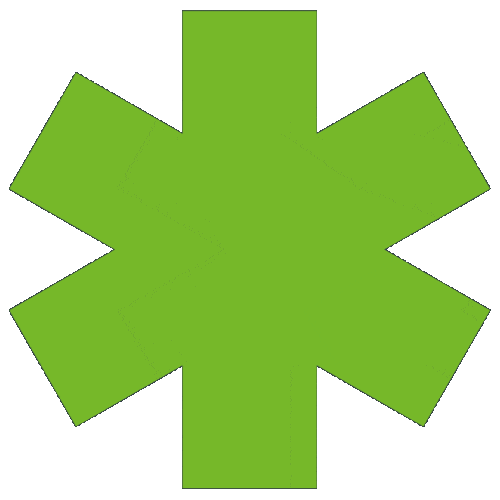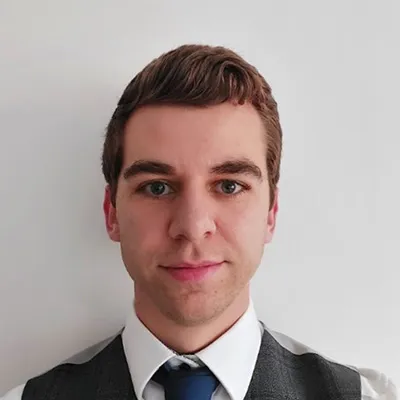Specialist/Enhanced Paramedic
A specialist/enhanced paramedic is a registered paramedic who has either completed, or is currently undertaking, a postgraduate diploma (PGDip) relevant to their area of practice. They possess an enhanced knowledge base, advanced decision-making capabilities, and demonstrate a high level of competence and professional judgement.
The role of a specialist/enhanced paramedic spans all four quadrants of the paramedic career framework, with a particular focus on advanced development within a specific quadrant – namely clinical. Whereas an enhanced paramedic will remain generalist and have a broad uplift of knowledge to optimise their patient care, a specialist paramedic will have a particular focus, areas of specialism may include urgent care, critical care, end-of-life care, or mental health, although this list is not exhaustive, as new areas of specialism continue to emerge each year.
Case studies
Use the case studies below to learn more about the experiences of different individuals.
A person’s role may start to develop more formally into the other quadrants. Each person has a pie chart showing how much of the different quadrants is involved in their role.
Below is the colour code for each quadrant:
Education
Leadership & Management
Research & Development
Clinical Practice
Education
Leadership & Management
Research & Development
Clinical Practice
Samuel Duncan
Trainee Advanced Clinical Practitioner and Specialist Refugee and Asylum Seeker Practitioner
20%
20%
20%
40%
Samuel Duncan
Job title:Paramedic Trainee Advanced Clinical Practitioner - Specialist Refugee and Asylum Seeker Practitioner
Entry route: BSc (Hons)

What steps did you take in your professional journey to obtain your current position?
10 years ago, when I started my career journey, I did not expect to be a Paramedic Trainee Advanced Clinical Practitioner, and Specialist Refugee and Asylum Seeker Practitioner, working within a dedicated health inclusion service. A role that ensures high-quality care is accessible to all patient groups irrespective of geography and demographics.
I was fortunate to study the BSc. Paramedic Science degree at the University of East Anglia, a course that promoted advancing the profession and clinical practice. Through this course, I recognised my passion for public health and the importance of considering how diverse factors can increase vulnerability in health. Thankfully, lecturers supported me in recognising the value of paramedics in a breadth of roles outside the ambulance service, starting my interest in health inequalities. An interest further developed through discussions with colleagues and clinical encounters as a paramedic.
I left the ambulance service unsure where my career would take me and found myself working for NHS mental health liaison services during the COVID-19 pandemic. A role which was both extremely rewarding and equally challenging given the restrictions enforced on individuals by a global pandemic. The diverse range of individuals supported through this role during the pandemic emphasised the diverse factors impacting upon health and the need to accurately identify circumstances leading to an individual's presentation, and consider a range of interventions to provide effective support. These experiences led me to my current role within a dedicated health inclusion service, particularly in a role delivering health outreach services to asylum seekers within the local community. A role that incorporates clinical practice, leadership, education and research into daily practice to improve clinical practice and patient experience.
Alongside this full-time work, I am vice-chair of the College of Paramedics Public Health Special Interest a Group which was established to build knowledge surrounding public health within the profession, and knowledge of the roles the paramedic profession plays in supporting public health amongst organisations and leaders nationally. This opportunity has allowed me to advocate for innovative approaches to improve the awareness of health inequalities, developing the practice of the paramedic profession whilst ensuring better health promotion and prevention for patients within public health strategies.

What does your typical working week/day look like?
I am very passionate about my work and I definitely work well outside office hours but my role offers flexibility that I would not have in the NHS and I am grateful for that. I work mainly from the university and at times from home. Travel is mainly for conferences and presenting my research. My work week varies greatly because I have 3 roles: Associate Professor/Deputy Head of Department and Faculty Simulation Lead. This means there are times where my research takes precedent due to bidding deadlines as Associate Professor. I also mentor other staff members to help increase their research profile and work on primary research and grant writing. The same can be said for my deputy head role, there are times in the academic calendar where we have line management and leadership deadlines to meet as well as teaching heavy times and marking. As the simulation role represents the Faculty I try to create space for at least 10-15 hours a week for this. This is a vocation for me and trying to make an impact in this profession is a privilege. Balancing work and life is important and I confess an area I can work on improving!

What is your favourite thing about your role?
What really matters most to me is helping my clinical paramedic colleagues manage mental health patients in a way that serves all involved in a better way. It started from my feelings in clinical practice and has continued to develop from there, doing my PhD on this subject area and then writing a book on it has been hugely rewarding on a personal and professional level. It is also a privilege to teach and help develop the future paramedic workforce. It is a gift to be able to share and exchange knowledge and to help our profession grow and develop.

What about your role is most challenging?
It would be a tremendous honour to become a Professor in Paramedic Science one day. It is certainly something I aspire to in the long term. In the short term, my focus remains on creating research and educational opportunities around managing mental health.

What advice would you give to others aspiring to reach your position?
Never say no to an opportunity even if it scares you. I never dreamed of doing a PhD, never mind completing one and becoming actively involved in research. This is actually my second career, I used to be a journalist and editor. Don't let anyone dissuade you of what you truly feel is your passion. I moved countries to fulfill my potential and looking back, despite some really tough times and some even tougher career decisions...I have no regrets. I am exactly where I should be.

